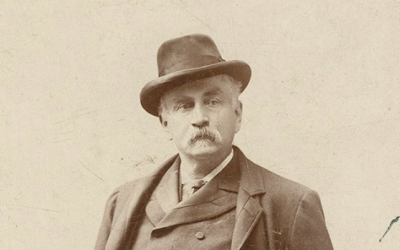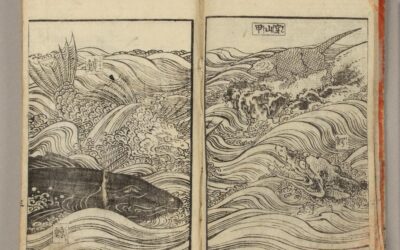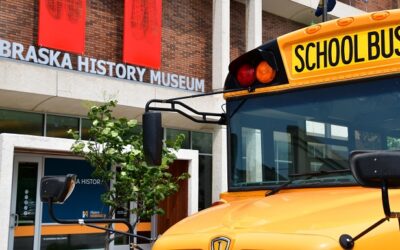“It is on Hallowe’en that everything gets a move on itself,” said E. F. Fassett, editor of the Hickman Enterprise on November 5, 1892. Fassett noted the proximity of Halloween to All Saints Day, November 1, and whimsically labeled Halloween pranksters “saints” in his account of their antics in Hickman in 1892:
“The gate that has stood the combined weight of two loving bodies all summer, is powerless to resist the antics of the saints; signs get mixed up in a very promiscuous and mysterious manner; buggies, and, in fact, everything that is moveable is suddenly compelled, by some unseen power, to change its base of operations. The peace of the household is suddenly disturbed by a gentle rapping on the window pane, and an investigation reveals nothing but mystery deep and gloomy.
“Hickman has its share of saints. . . . Monday night they were out in full force, and Tuesday morning when people went down town it was impossible to tell whether our town had been struck by a cyclone or an earthquake. Uncle Sam did not escape, for when Postmaster DeHaan [?] attempted to open his door, he found it barricaded on the outside. However, he was soon able to work his way out and ate his breakfast at about the usual minute.
“At B. L. Liesveld & Co’s. a large ice chest disputed their entrance to the store. The saints planted Betzer’s barber sign in front of the drug store, while C. Fisher’s harness shop sign was made to do duty for Kuiper’s barber shop, and Mr. Fisher’s shop was adorned by Kuiper’s red and white barber pole. An ice cream freezer and a sign ‘for sale’ was placed in front of the pool hall.
“When Ed Grote came down town to get his meat wagon ready for an early trip to the country, he found it on the sheds of the M. T. Peck Lumber Co., where a sleigh had also been placed. Rowerdink & Diesel, VanBurg’s hardware store, the saloon, Suiker’s hardware and the livery barns all received visits from [the] ubiquitous saint, who left unmistakeable evidences that he was around. In fact no portion of town escaped the mischievious relic of early customs, but our older male inhabitants took it coolly, and no doubt remembrances of early experiences in the saint business caused them to smile a smile all to themselves.”



